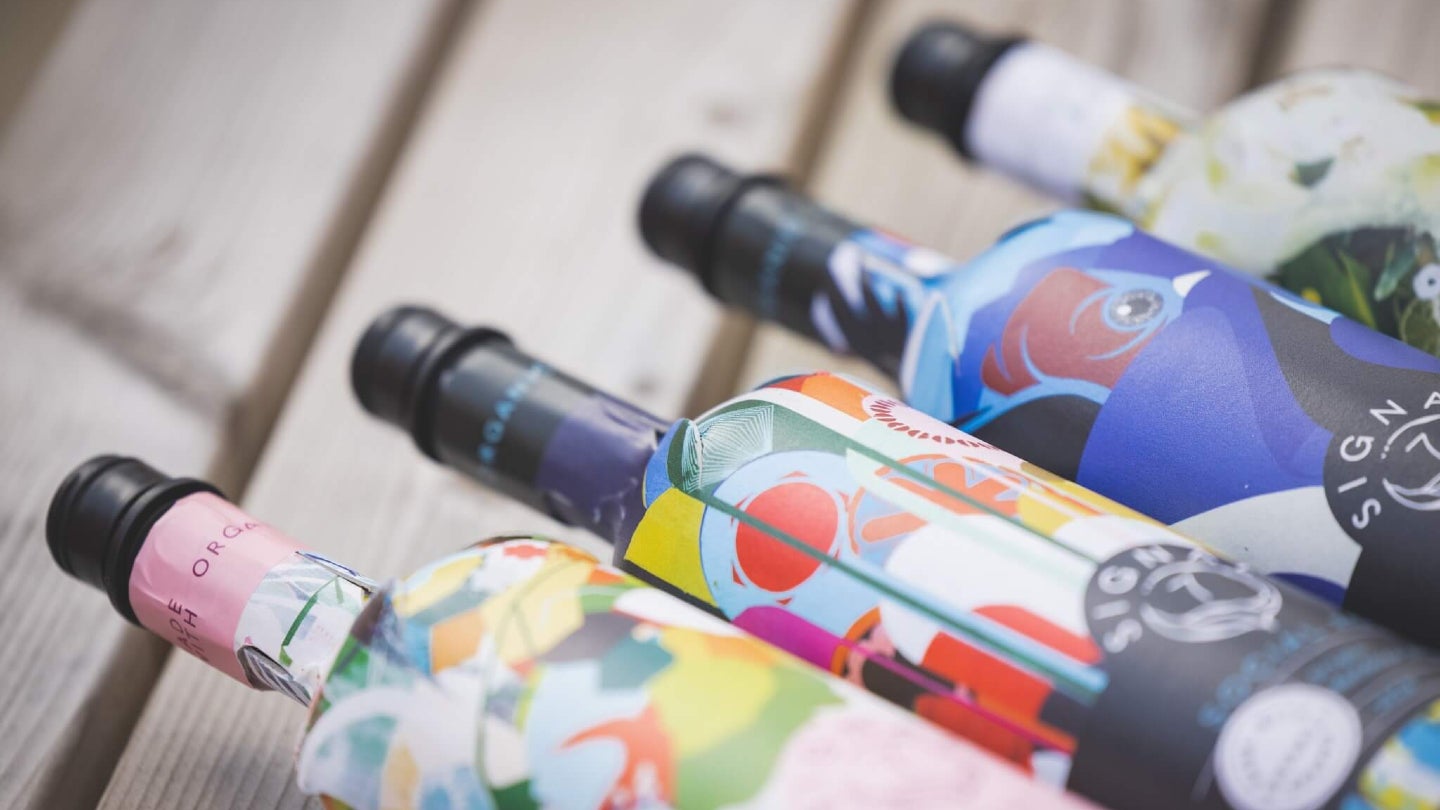
Early success with paper bottles suggests a possible avenue of change for alcoholic drinks companies, as the packaging industry looks to become greener.
Wine and spirits packaging company Frugalpac launched its first paper bottle in 2020. Made from 94% recycled paperboard, the bottles are currently stocked in 25 countries – among them France, Spain, Italy, the US, New Zealand and Australia.
The bottles are five times lighter than glass and have a carbon footprint six times lower than traditional glass products, making them a more eco-conscious option for companies looking to make a change. Over 30 brands now use Frugalpac’s paper packaging for their drinks, including Cantina Goccia, which reportedly intends to sell half of its wines in Frugal bottles.
However, it is not the only company exploring this frontier. Carlsberg has announced that it is developing a green fibre beer bottle, using sustainably sourced wood fibres. The bottles will be 100% bio-based and fully recyclable but currently exist only as prototypes.
Paper bottles hold promise as packaging is the singularly most damaging aspect of production, ahead of farming processes. Frugalpac estimates that its products have saved over 740 tonnes of CO2 through their use by 30 brands in 100 SKUs.
Filings across packaging companies indicate that the industry has become increasingly eco-conscious over recent years, with related terms being frequently mentioned in filings across the alcoholic beverage packaging industry.
GlobalData analytics also reveal that these concerns have particularly grown in alcohol beverage companies in Europe, North America and South and Central America since 2019. Although paper bottles are still a young concept for alcoholic drink companies, there are interested markets, and Frugalpac has found its success primarily in Europe and North America.
Speaking recently to Food Manufacture, Malcolm Waugh, CEO of Frugalpac, said: “Almost 50% of the carbon emissions associated with the wine industry come from its packaging, which is an exceptionally high percentage.
“Winemaking is not an overly industrial process, so the team saw the potential impact creating an alternative to glass could have in terms of improving sustainability.”
However, there are some potential obstacles to scaling up the use of paper bottles for alcoholic drinks. The Wine Society’s Sustainability Plan considered a range of alternatives to the traditional glass bottles, including paper designs. It warned that environmental impact of lined paper bottle designs will be dependent on local recycling provisions, as “while recyclable in theory, the paper bottle’s inner liner is unlikely to get recycled in the UK in practice due to a current lack of collection and reprocessing infrastructure for flexible and laminated plastics.”
Our signals coverage is powered by GlobalData’s Thematic Engine, which tags millions of data items across six alternative datasets — patents, jobs, deals, company filings, social media mentions and news — to themes, sectors and companies. These signals enhance our predictive capabilities, helping us to identify the most disruptive threats across each of the sectors we cover and the companies best placed to succeed.


